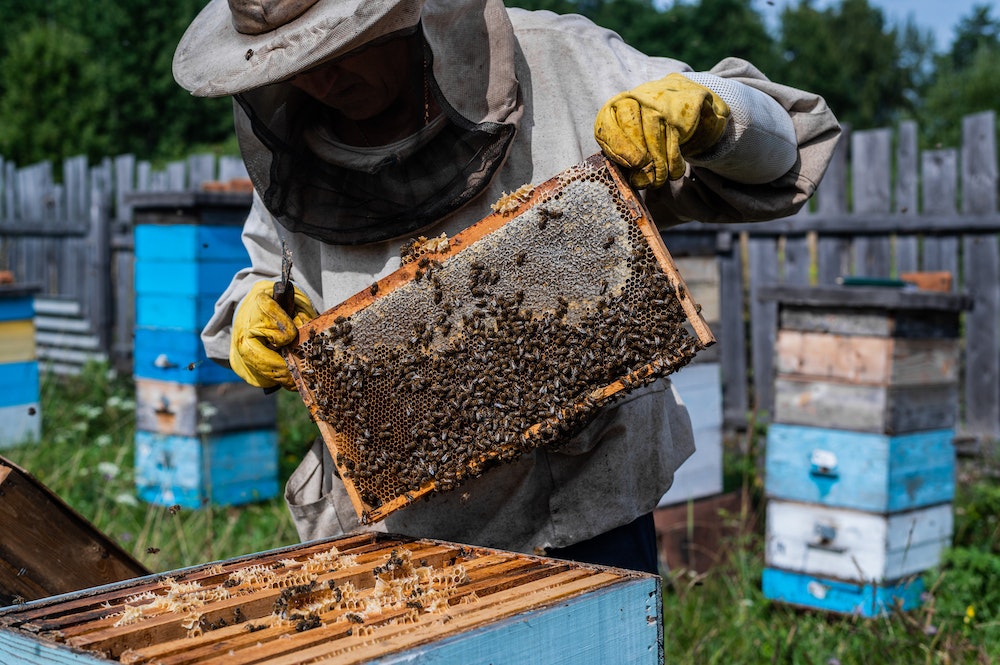How Can Urban Apiaries Improve Local Biodiversity and Resident Well-being?

The world of bees and beekeeping is fascinating. Not only do they produce honey, a delicious and nutritious food, they also play a critical role in agriculture through their function as primary pollinators. Today, let’s take a deep dive into a particular aspect of beekeeping that is gaining popularity: urban beekeeping. Can urban apiaries, or bee farms, truly support local biodiversity and enhance resident well-being in our cities? Let’s explore this intriguing question together using data from reliable sources, including Google Scholar, and observe how urban beekeeping aligns with sustainable and environmental practices.
The Importance of Urban Beekeeping for Local Biodiversity
When we think about beekeeping, we often imagine vast rural landscapes filled with flowering plants. However, bees can also thrive in city environments. Establishing urban apiaries is not only feasible, it can significantly contribute to the local biodiversity.
Dans le meme genre : What Are the Psychological Effects of Volunteering on Senior Citizens?
Urban apiaries offer city-dwelling bees a place to live and produce honey. But more than that, they help promote the growth and spread of a wide variety of plants. Bees are exceptional pollinators, and their activities help plants reproduce. This, in turn, attracts other insects and animals, fostering a more diverse ecosystem.
In cities where green spaces are often limited, the presence of urban bees helps ensure the survival and propagation of local plants. By helping plants thrive, bees indirectly support the survival of other local fauna too.
Avez-vous vu cela : What Is the Role of Omega-3 Fatty Acids in Preventing Age-Related Macular Degeneration?
Additionally, city bees can enjoy a more diverse diet than their rural counterparts. In fact, a study cited on Google Scholar reported that urban bees often have access to a greater variety of flowering plants than bees in agricultural areas, where monoculture farming is prevalent.
Urban Apiaries as Pillars of Sustainable Food Production
Urban beekeeping also contributes to sustainable food production. Bees are primary pollinators, and a significant proportion of our food supply relies on their work. According to data from the United Nations, bees and other pollinators significantly increase the output of 87% of all food crops worldwide.
In the context of city agriculture, bees can improve the yield of community gardens and city orchards. Not only that, urban apiaries themselves can be a source of local, sustainable food in the form of honey. Unlike mass-produced honey often sold in supermarkets, honey from urban apiaries is typically produced on a smaller scale, reducing the environmental impact associated with large-scale food production.
Moreover, urban-produced honey is a truly local food. It reflects the unique mix of flowering plants in the city and provides residents with a distinct, locale-specific flavor. As such, urban honey not only contributes to food sustainability but also nurtures a sense of local identity and community.
The Health Benefits of Honey from Urban Apiaries
The honey produced in urban apiaries is not just delicious. It’s also packed with health benefits. Honey is a nutrient-rich food, containing antioxidants, vitamins, and minerals. It’s a healthier alternative to sugar and can help soothe sore throats and boost the immune system.
What’s particularly interesting about urban honey is that it can offer additional health benefits due to its local nature. Some research suggests that consuming honey produced by local bees can help individuals dealing with seasonal allergies. The theory is that by exposing the body to small amounts of local pollen contained in honey, individuals may become less sensitive to these allergens.
Urban Beekeeping and Community Building
Urban apiaries can help foster a sense of community among city residents. Beekeeping can be a shared hobby or interest, bringing people from different backgrounds together. It can also be an educational opportunity, allowing both children and adults to learn more about bees, the environment, and food production.
Community-based beekeeping projects can encourage local residents to take an active role in sustainable practices and environmental stewardship. This can lead to more resilient urban communities that are better prepared to face environmental challenges.
Urban Apiaries: Enhancing City Landscapes and Environments
Finally, urban beekeeping can enhance city landscapes and environments. Bee-friendly spaces, such as rooftop gardens and green terraces adorned with bee hives, can transform concrete jungles into green, living spaces. Moreover, these green spaces can help mitigate some environmental issues inherent in urban areas, such as heat islands and air pollution.
In a nutshell, urban apiaries are more than just hives placed in city environments. They represent a symbiotic relationship between humans and bees, a testament to how cities and nature can coexist and mutually benefit each other. Through enhancing local biodiversity, supporting sustainable food production, offering health benefits, fostering community spirit, and improving city landscapes, urban apiaries indeed have the potential to significantly improve the well-being of city residents.
Boosting Urban Agriculture Through Urban Apiaries
Urban beekeeping is not only beneficial for the bees and the environment, but it also plays a critical role in boosting urban agriculture. By establishing urban apiaries, we can enhance food security and sustainable development in urban areas.
Bee populations in urban apiaries are vital pollinators of fruits and vegetables grown in urban gardens. According to a report on Google Scholar, bees increase the yield of 84% of crops grown for human consumption. The presence of honey bees in city environments can significantly increase the productivity of city gardens, contributing to local food production.
The importance of this benefit cannot be overemphasized considering the challenge of food security in growing urban areas. Urban agriculture, supported by urban beekeeping, can provide a sustainable solution to this challenge. By pollinating urban gardens, bees can help ensure a steady supply of fresh, locally grown fruits and vegetables.
Furthermore, urban beekeepers can also contribute to the local economy by selling their bee products such as honey and beeswax. These products are not only delicious and healthful, but they also have a smaller carbon footprint compared to similar products transported from rural areas or other countries. This aligns with the goals of sustainable development and is another way how urban apiaries can contribute to the well-being of city residents.
The Impact of Urban Apiaries on Bee Health
An additional advantage of urban apiaries is their potential positive impact on bee health. Wild bees face numerous threats in rural areas, including exposure to pesticides and loss of natural habitats due to monoculture farming. Urban environments, surprisingly, may offer safer habitats for bees.
According to a Scholar Crossref study, the diversity of plants in urban gardens can provide bees with a more balanced diet compared to the single-crop food sources in agricultural areas. This diversified diet can improve bee health by providing them with a wider range of nutrients.
Moreover, urban gardens are typically smaller and more controlled than rural farms, making them less likely to use harmful pesticides. This can decrease bees’ exposure to harmful chemicals, further promoting their health and survival.
Conclusion: The Promise of Urban Apiaries for Sustainable Cities
In conclusion, urban apiaries offer a promising solution to multiple challenges faced by modern cities. By supporting local biodiversity, enhancing food production, promoting bee health, and fostering community spirit, urban beekeeping aligns perfectly with the principles of sustainable development.
Urban beekeepers play a pivotal role in creating sustainable cities. They help create a greener urban environment, contribute to local food security, and even provide educational opportunities about the ecosystem services provided by bees.
As we look to the future, embracing urban apiaries can make our cities more resilient, sustainable, and livable. And perhaps most importantly, urban beekeeping reminds us of the profound interconnections between humans and nature, even in the heart of our bustling cities. After all, the well-being of the honey bee is inextricably tied to our own. As we care for the bees, we are also caring for ourselves and our communities.
Looking forward, it is important to continue supporting urban beekeepers and advocating for policies that protect and enhance urban bee populations. Each urban apiary we establish takes us one step closer to building more sustainable and resilient cities.
